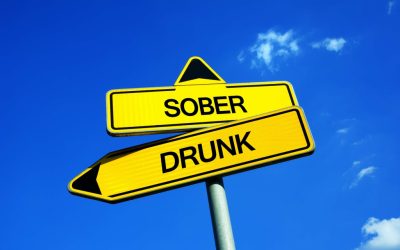How Alcohol Impacts the Brain Northwestern Medicine
Content
Some people benefit from self-help groups such as Alcoholics Anonymous . Others get help from doctors, psychologists, or counselors with experience treating addiction. Drinking after TBI may be dangerous if you take prescription medicines. It can also increase the effects of some medicines; this may lead to overdose or death. Drinking alcohol with medicines for anxiety or pain is risky because of the potential for multiplying the effects of both.
Recently, two sub types of the GABAA receptor have come into the spotlight for showing what can possibly be a genetic predisposition to alcohol addiction. These two subtypes are namely GABA A receptor α1 and GABA A receptor α6 . The gene encoding GABRA1 is located on chromosome 5 at 5q34-35 while the gene encoding GABRA6 is located on the same chromosome at 5q34. According to a study by, a significant correlation was found with the GABRA1 genotype and Collaborative Study of the Genetics of Alcoholism AD, history of blackouts, age at first drunkenness as well as the level of response to alcohol.
Get help for alcoholism today.
Because alcohol is a depressant, it can dangerously suppress breathing and lower body temperature to life-threatening levels. Even in the short term, alcohol affects areas of the brain controlling cognitive and motor functions, causing them to slow down. Alcohol impairs memory, judgment, and coordination and disrupts sleep patterns. A dual diagnosis can be complicated to treat, no matter the circumstances. The most common treatment options are included below, but know that recovery requires a personalized treatment plan that best suits your mental health needs.
Gut microbiome-wide association study of depressive symptoms – Nature.com
Gut microbiome-wide association study of depressive symptoms.
Posted: Tue, 06 Dec 2022 16:15:42 GMT [source]
You may not look like you have been drinking, but your reaction time, behavior and judgment may be slightly altered. Depending on weight, most men and women enter this stage after one drink. In 2020, alcohol consumption in the U.S. spiked, with heavy drinking increasing by 41% among women. Contact a treatment provider now to find out more about alcohol and depression treatment options. A treatment provider may also prescribe an antidepressant to balance mood swings and other symptoms of depression. While medications can be extremely beneficial during recovery, they should only be used alongside other forms of treatment.
Why Is Teenage Drinking Dangerous?
He enjoys spending time on his farm and going to the movies whenever possible. Lauren Juvers serves as National Business Development Representative for Burning Tree Programs. He graduated from Texas Tech University with a Bachelor of Sciences in Human Sciences, is a Licensed Chemical Dependency Counselor Intern, and a Certified Mindfulness In Recovery Facilitator.

As the brain and body become more habituated to the presence of alcohol in the body, it becomes more difficult for a chronic drinker to quit drinking. Binge drinking means to consume a large amount of alcohol in a short period of time and is one of the most common causes of alcohol poisoning. The National Institute on Alcohol alcohol and depression Abuse and Alcoholism states binge drinking occurs when an individual’s blood alcohol content is at .08 or higher, which is the threshold for legal intoxication in many states. Heavy or chronic drinking occurs over an extended period of time. For women, this is more than three drinks per day or seven drinks per week.
Alcohol Use Disorder (AUD)
While some forms of this mental illness are less severe than others, depression can quickly take control of a person’s life. According to WebMD, nearly one-third of people with severe depression abuse alcohol. Research also shows that children who https://ecosoberhouse.com/ are depressed are more likely to develop problems with alcohol abuse once they reach adolescence. Studies have shown that, among people abusing alcohol, somewhere between 30 percent and 50 percent suffer depressive symptoms at any given time.
The release of these chemicals, in addition to other physical and chemical changes in the absence of alcohol, can lead an individual going through withdrawal to become more angry, depressed, frustrated, or tired than previously. Brain shrinkage is caused by a loss of gray matter, which contains cell bodies, and white matter, which controls cell pathways. A 2017 study published in the British Medical Journal is one of many that has identified a correlation between high alcohol consumption and brain shrinkage.
